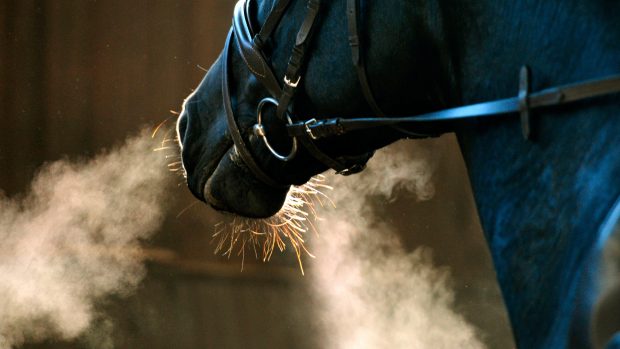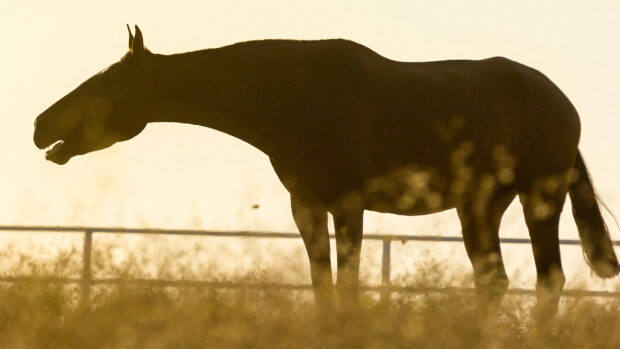Dr David Marlin explains why riders shouldn't think a horse that coughs during its warm-up is in the best of health
In the unfit or untrained horse, it is the heart that is the main limitation to exercise performance followed by the muscles. As a result of training both the heart (which is made of a special type of muscle) and the muscles change and become more able to cope with exercise. However, the respiratory system cannot and does not change as the horse gets fitter with training and so in trained horses, the respiratory system is the main limitation to exercise performance.
Many survey type studies have found that after lameness, the most common reason for a vet to be called out or for horses to not be able to be exercised or competed is respiratory disease. In a study of 3000 horses in Germany, it was observed that respiratory disease occurred in 420 horses over one year (Knubben et al. 2008) and in another study of horses referred for a veterinary examination because of poor performance, four out of five were found to have respiratory disease (Nolen-Walston et al, 2013).
Recurrent airway obstruction (RAO or “heaves” or equine COPD or “broken wind”) is the most common chronic (essentially there for life) respiratory disease affecting horses in the UK. It is a disease affecting older horses, predominantly those over eight-years-old.
Respiratory disease in horses can be caused by infections (bacteria, virus, fungi), allergy (grass pollen, tree pollen, crop pollen, shrub pollen, moulds, fungi, dust, forage mites, bacterial toxins) or irritant (ammonia produced by bacterial breakdown of protein in the horses urine, dust (e.g. fine sand), cold air) and sometimes a combination.
In younger horses, respiratory disease due to bacterial infection is more common than due to viruses or allergy. In older horses, allergic disease is more common.
The most common external (i.e. ones that can be seen without the need for a veterinary examination with an endoscope, stethoscope, blood test, x-ray or ultrasound) clinical signs of respiratory disease in horses can include any combination of one or more of the following:
- Cough
- Nasal discharge (clear, white, yellow, green, think and runny or thick or foamy)
- Increased respiratory rate at rest
- Increased respiratory effort at rest
- Increased temperature
- Abnormal breathing during exercise (e.g. abnormal noise or irregular breathing)
- Slow recovery after exercise
- Poor exercise performance
- Frequent swallowing during exercise
- Blood at the nostrils after exercise
A horse with respiratory disease may have one or more of the above symptoms.
It is a myth that a horse must be healthy if it doesn’t cough. Compared to people horses are much less likely to cough even when they have quite severe respiratory disease. It is often said that it is “ok for a horse to cough a few times” during warm-up as this is simply the horse clearing its throat. This is NOT true and the horse that coughs a few times during warm-up is likely to have some respiratory disease that should be investigated by a vet.
Common treatments prescribed by vets for the treatment of respiratory disease include:
Antibiotics: when there is evidence of bacterial infection these may be given orally or by injection.
Bronchodilators: drugs which open up the airways (e.g. Ventipulmin) to allow the horse to breathe easier and to clear mucus. These may be given in feed, intravenously or by inhalation.
Anti-inflammatories: drugs that reduce inflammation (e.g. dexamethasone). These may be intravenously, into the muscle, in feed or by inhalation.
Like this? You might also enjoy reading these:
Horse health week: why gut health is key for a happy horse
8 ways to enjoy the sunshine with your horse
Horse health week: why vitamins and minerals are essential
In addition to veterinary prescribed pharmaceutical treatments for respiratory disease, high dose antioxidant supplements have been shown in several controlled studies to be beneficial in reducing respiratory symptoms (Deaton, Marlin, Smith et al. 2004).
Deaton, C.M., Marlin, D.J., Smith, N.C., et al. (2004) Antioxidant supplementation in horses affected by recurrent airway obstruction. J Nutr 134, 2065S-2067S.



